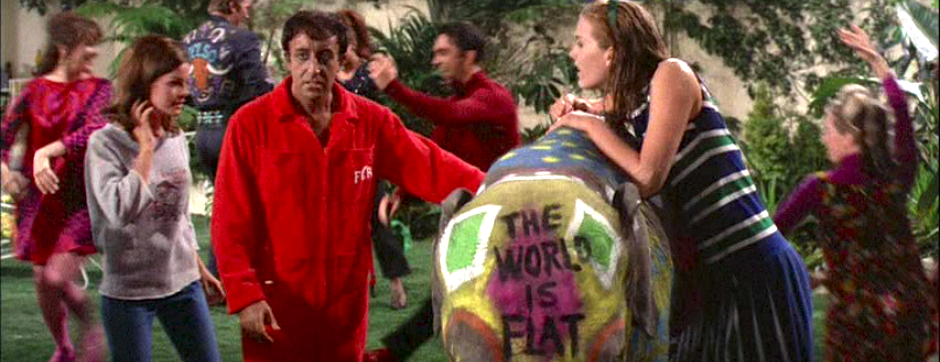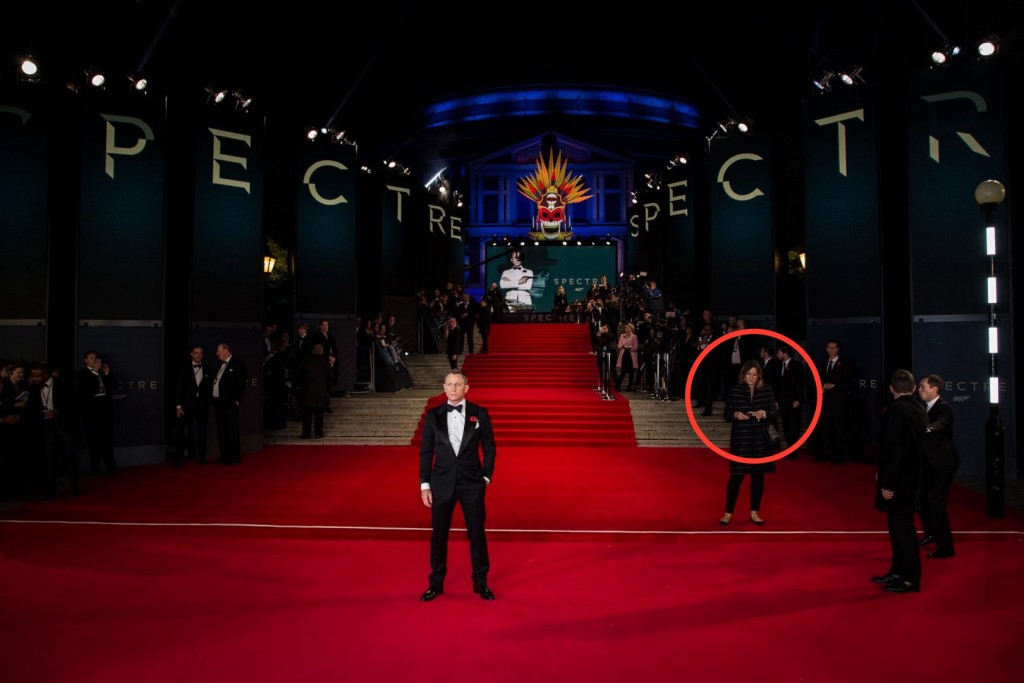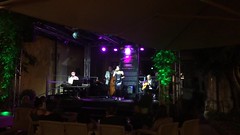What better end of year than talking with my friend Dan over a good pizza and an Aperol Spritz… and what better occasion than this to begin my blogging year 2016.
The occasion arose from his wish to discuss the latest Sherry Turkle’s book, Reclaiming Conversation. With its perfect title, this book reminds me of the various efforts done by friends and foes to reclaim something which has got lost or is about to. Reclaim Hosting or Reclaim Italy from my Jedi Master Jim Groom, or reclaim the Open Web (which will be the main theme for inf115-New Media class), or reclaim… whatever I need to reclaim on my own.

I haven’t read yet the book but read and commented here her recent writings. Now, instead, I will write about my conversation with Dan and the essential ideas that flowed. I will also connect all this with my next class (New Media and Social Networks) of January, which I’ll share with my friend Alan Levine, who is here for the whole month of February (wow, we’re doing this!!) and with the very Dan, at least for a while.
Our conversation went on about the idea, of course, of reclaiming the conversations that we seem to have lost in education, and to reclaim the strategies, tools, pedagogy and technologies that best fit our educational discourse. (And of course, the education discourse that gets modified, shifted and whatnot by said tools and technologies.) Certainly, as faculty we are losing the ability to choose and implement the strategies that we consider best for our classes, and we’re losing that to big narratives that usually come from players who are not aboriginal academicians.
So: Dan tells me the book deals with this idea that we’re not engaging in real, meaningful conversation, which have been replaced by pieces of communications like the 14o characters of Twitter or the little-longer SMS texting.
Turkle argues we are losing it against these technologies that seduce and hypnotize us. In fact, I have just seen a couple in a date at a restaurant table where both were staring at each phone screen, instead of each others’ eyes. Dan asks: shouldn’t we be doing something about it in education? Like firing an alarm and discussing this?
Yes. We have to.
But, I fear it could also be counter productive. I mean, by now faculty should be aware of the dangers lurking in the use of “new” tech. True. [Of course, technology is also aware of this, and it is fairly aware of the dangers people present to it–thus it changes accordingly!]
But I mean, faculty (and the people in general) are just beginning to be aware of the Web, at least in the sense of this revolutionary medium/environment that they need to embrace creatively and make it their own (as opposed to using it simply as consumers; in the end, the web 2.0 was all about “We are the web”, right? We the people “are” both consumers and producers.) We’re not there yet. Instead, not only haven’t people grabbed it for what it is, but they are also falling for the big schemes of others, losing the chance, for once, to establish one own’s identity and narrative. This is especially true in education, where we all fell for the discourse of the big LMS, MOOCs, learning analytics and big data rhetoric. Oh yes, of assessment too.
So, in a way, we were thinking: let’s just say we use an LMS and then, subversively use it in a way it is not intended to. Let us appropriate the instruments and refocus them!
But I think the problem is way bigger, and unfortunately it does not entail only tech or education, but also politics. Let me enumerate the things I’m most worried of now. Perhaps I’ll make a blogging agenda out of this list.
- Some of the most-used edtech has a very limited span of utilization. LMS’s for instance, are very constrained, tunnel-effect prone, and reductive. All educational discourse is transactional, if not merely “content-driven” and “watered-down-content-limited”. They are also closed, and they do not embrace at all the ideas of the open Web. They also impose a one-way vision of the learning and teaching experience as mostly administrative: the student reads (nobody says “a student studies”!), perhaps discusses something with others in a restricted environment, works in assignments which are then “submitted” –can’t help but think of mind “submission” here– and at last takes some exams. Two thousand years of western education and pedagogy advance linearly rolled down before your eyes.
- I am worried about the infantilization of everything. From movie blockbusters (now almost always made for adolescents–both of real age and in metaphor), to the famed course “content”–watered-down and infantilized through the production of “materials” by faculty. I fail to see how a Powerpoint summary of the main “chunks” of information (that come in the test) plus a videotaped mini lecture (even when brilliant), which is the content that gets published within a LMS, can be equivalent to a personal, ample, even theatrical if you will, presentation of a topic with attached class discussion. Where has the old Chapter 1 from book A plus Ch. 6 from Book D plus this notes from my best students’ last class, gone?? Where are the publishers anthology-like ebooks that faculty could compile online?? Are they being used?
- I can’t help doubt about the real participation of faculty and students in the decision process when an educational “platform” needs be selected. Who controls the “real” reasons why a certain tool gets chosen? For instance, if we say that “assessment and analytics” affordances must be present, then we end up with a subset of possible environments which may or may be not well-suited for the academic job. Or sometimes, just not too well-suited. Well, why should we conform with mediocrity? Also, some corporations have a substantive interest in gaining money and influence through such choices, and I’m not talking only of Blackboard and friends, but also of big editorial companies, or other sort of conglomerates. Such companies do lobby strongly and end up imposing their narrative.
- The world within an LSM is a closed world, so reassuring, so Disney World. In fact, now that I think of it, Facebook too, with its walled-garden and controlled environment is a Disney World. I’ll write soon about this powerful idea.
- Another worrisome thought about the effects of this malformed technology within education. The MOOC experience is not necessarily useless. In fact, a few MOOCs of the first kind (those that are called c-MOOCs) may be powerful pedagogic forces, except they do not interest anyone at the higher administrative level in universities. But if some faculty can do them, that’s great experimentation. Another story is when you begin using this or that MOOC platform, because I suspect you’ll end up with a limited learning experience for your students. Now, a huge issue I see within this trend of MIT, Coursera and Udacity et al. is in the next item:
- Namely, the imperial model of distribution of “knowledge”. I believe it’s similar to the missionaries’ ideal: to bring the Word to the ignorant. Now, those who put themselves in the position of the missionary (pun not intended) are those to be afraid of, for they are imposing their view of higher education, along with their own values and their companies’. Like the Spanish missions, exactly. The Empire strikes back–and conquers. I simply shiver at the arrogance of people who can say, we are the best, and thus here is our knowledge, and it’s free. Remind: there’s no free lunch, ever.
- The development model based upon the startup economy is questionable. But what does it have to do with the topic at hand? Well, as I see it, as universities are embracing the new app development movement and the entrepreneurship flag (which can be a good thing by itself), they join the ranks of companies and organizations which have been adopting the Silicon Valley startup gospel. This in turn has convinced everybody (including government officials) that building startups is good for the economy. Of course it may be good, until the startup gets acquired by VC funds. At which point two things can happen: (a) the startup makes money (unlikely, though: only 5% of startups makes it) and its control shifts little by little to the angel investors and their logic of producing income; and (b) it doesn’t make money and collapses, often losing tons of money. So, universities are about to be too invested in this neoliberal model, and this will propagate down to the philosophy of teaching and of the student experience. See Holly Wood‘s nice article on the surreal speculations of Paul Graham: it’s very illuminating (Paul Graham is Still Asking to be Eaten. An Obviously Critical Response to “Economic Inequality” by Paul Graham, on Medium, Jan 3rd, 2016.) [Note that I respected a lot Graham when he talked about programming.] Now, how does our bubble-model for higher-ed change, because of this? We don’t know yet. However, I think we have built a system worth protecting in our universities and the times call for vigilance.
Last, I think a honest student-centered model of teaching and learning should forget the constrictions of ready-made, imported (from vendors) narratives and develop some few crucial ideas to precisely activate the conversations within and without the academic community. What best, then, than to reclaim the original idea of the open Web and help students develop a strong digital identity, with their own cyber-infrastructure controlled and owned by them in the appreciation of the network of relationship that such Web may weave with them. But we all must be aware, now.




 It’s all set in Paris, gourgeously written and translated (my version is in Italian). Here is the
It’s all set in Paris, gourgeously written and translated (my version is in Italian). Here is the 


